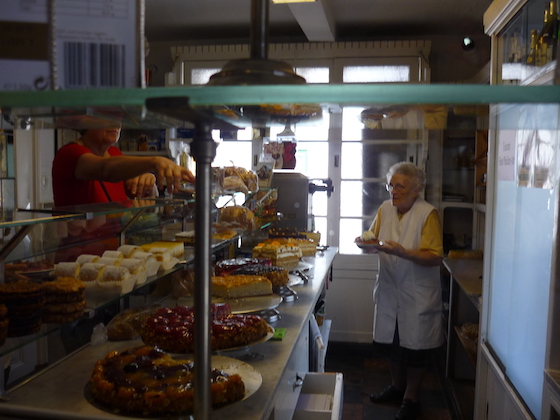
This is the third post in my Writing Gratitude Countdown. I’m noticing that gratitude is like a pair of sunglasses. My writing journey takes on a whole color.
(Find all the posts: 1. The Gift of Attention , 2. The Gift of Permission, and 3. The Gift of Hospitality, and 4. The Gift of Feedback, 5. The Gift of a Deadline.)
3. The Gift of Hospitality: the value of an invitation into another world
A surprising thing about writing fiction is how much information you need to do it. Send a character to film school and you’ll have to go there yourself. Set a novel in the Middle Ages and spend an afternoon figuring out how to get your characters dressed and out of the room.
Your job as a writer is to find a way to inhabit an unfamiliar world so your imagination can fill in the gaps. This is what I’ve learned about working with hosts of unfamiliar worlds:
- Someone knows all about your story world, no matter how obscure you think it is. You have to find them. My husband is a curator at a natural history museum so I know that research collections exist to be used.
The Walters Art Museum in Baltimore, Maryland, has a collection of 1,000 year old manuscripts. Feeling like an imposter, I called up the very distinguished Dr. Martina Bagnoli listed on their website, and shyly described my middle grade manuscript. She graciously listened to me and gave me permission to visit the collection.
At my appointment, the classically-trained Dr. Kathryn Gerry showed me spectacular 1000-year-old manuscripts from all over the Mediterranean. She also generously answered my questions about all the ways manuscripts could be wounded. See their beautiful work in The Medieval World: The Walters Art Museum by Martina Bagnoli and Kathryn Gerry.
- Take courage. Throw yourself (politely, of course) on their mercy.
For my first novel-length manuscript, a professor at the film department of Burlington College gave me an insider tour of the facilities and answered my hundreds of questions. Sadly, the college closed in 2016.
I went to an open house for prospective students and the organizer gave me the professor’s name. He told me his roommate was a novelist and gave me an inside view of a film student’s world. A wonderful example of paying it forward. To my shame (!), I can’t find where I wrote down his name, but I won’t forget his hospitality or the way the tiny room full of colorful film-editing keyboards felt.
- Get as prepared as you can. Do whatever work you can before you bother the experts. Richard Nelson Bolles said it best in WHAT COLOR IS YOUR PARACHUTE: “Ask me what I alone know.”
Librarians are the obvious first choice. Google and Wikipedia can lead to great materials, but the research librarians at your local university can point you towards research archives and collections you’ll never find on your own. They also have contacts.
Original sources give the five senses details writers need to create a fictional experience. The University of Vermont’s Bailey/Howe library (since re-named to David Howe Library) pointed me towards reference books for medieval costumes.
Before I visited Washington, D.C. for a work trip, reference librarian Robert Resnik, at the Fletcher Free Library, sent a request to the Smithsonian for me to find out what medieval manuscripts could be seen. The Smithsonian suggested The Walters Art Museum.
There are other, imaginative kinds of prep. Peter Elbow’s Writing With Power suggests using personal experiences to bring dry writing to life. Camping to remember what it feels like to live out of doors. Drafting also helps you find out what you need to know and makes you feel less of an imposter when you ask experts questions.
Unexpected bonus: The amazing children’s librarians–Hoorah!–at my local library, Beth Wright, Christine Webb, and Rebecca Goldberg, also helped me find comparative titles and suggested ways to pitch my story that fit the current market: “Go for the spunky girl narrator.”
- Bring gifts and pay it forward where you can. My eldest child patiently looked at medieval coins in The British Museum with me when we visited London. We went to tea and a play, but that didn’t really cover the debt. Gifts never do. They are only a physical token of our gratitude. I’ve written about other ways my family helped me here.
A calendar, a coffee date, or a thank-you card are reminders that someone went out of their way for me. A link to their newest book is no hardship either.
Maybe the truest way to show gratitude is to keep on keeping on. Doing my best work is another way of paying off debts to people who went out of their way to help. They invested in me and I’m cultivating that gift to the best of my ability. When fruit finally appears, it will be because so many people took time to share their worlds with me.
Happy writing!
So that’s my third installment of gratitude for my writing journey. (Find all the posts: 1. The Gift of Attention , 2. The Gift of Permission, and 3. The Gift of Hospitality, and 4. The Gift of Feedback, 5. The Gift of a Deadline.)
If you’d like to share about people who invited you into their worlds, please feel free to write via my contact form. I’d love to hear your story!
Save
Save
